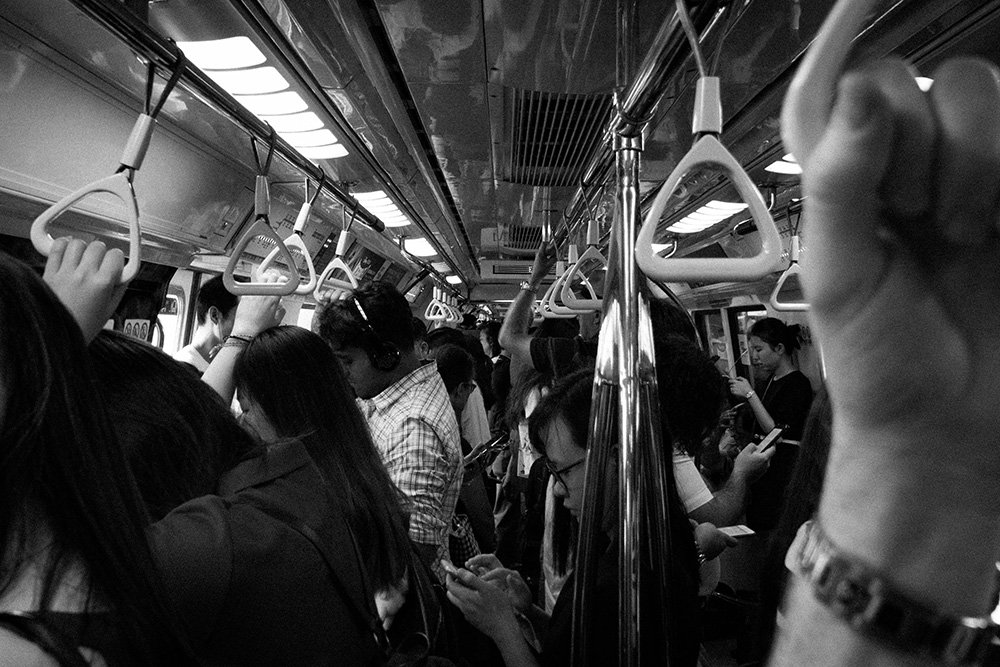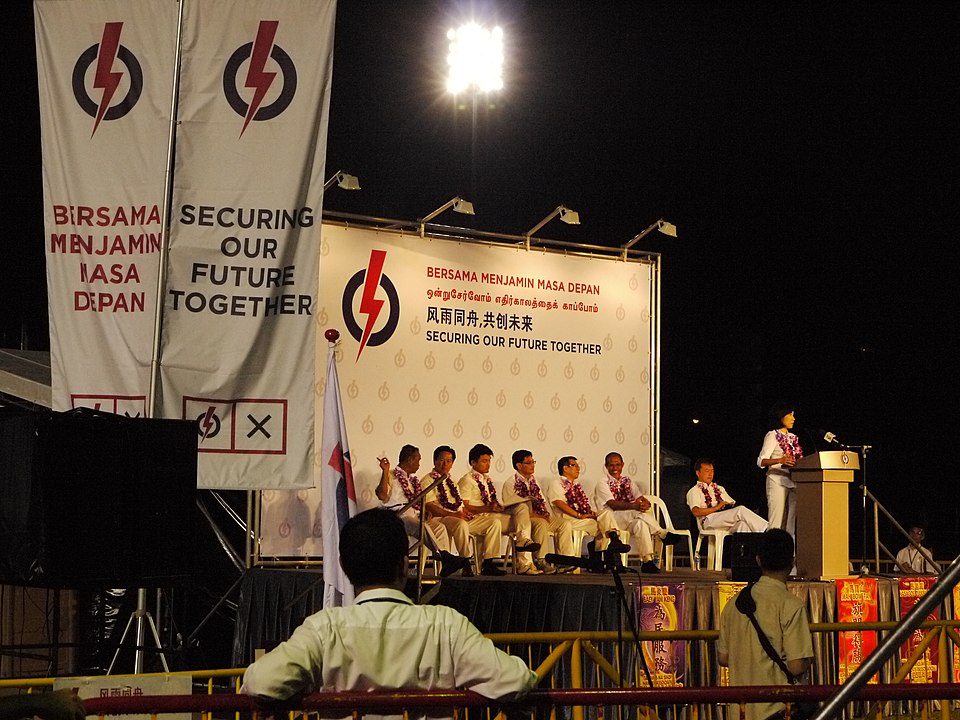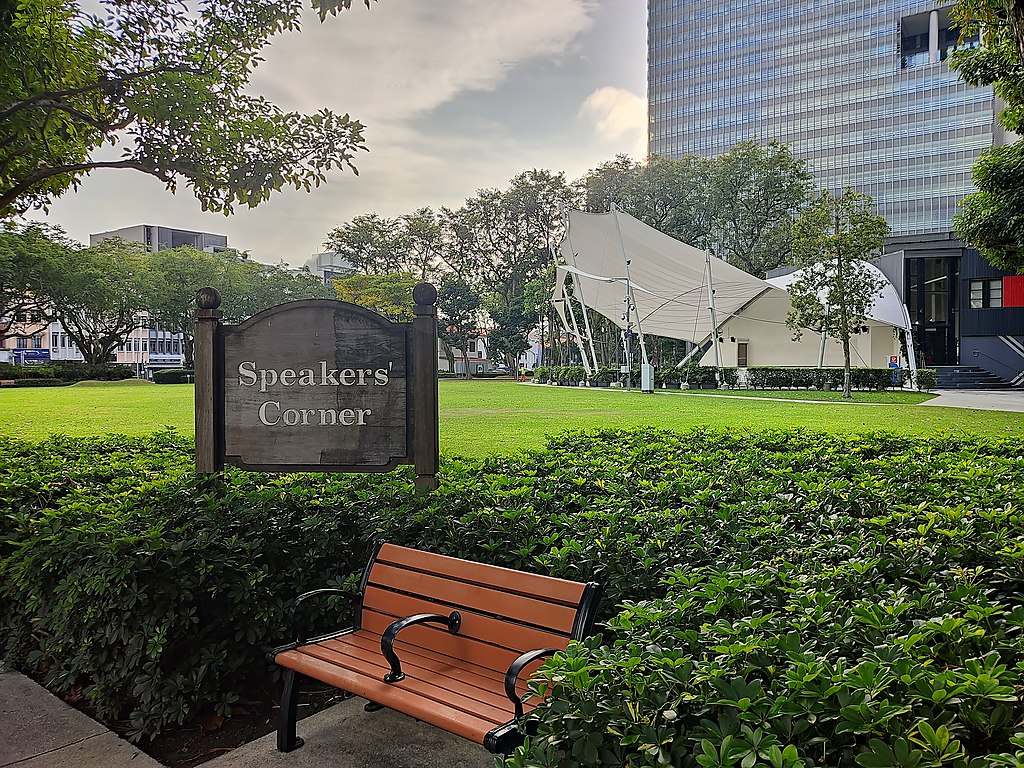
政治離れ問題
ソーシャルメディアの発達により、市民の政治的関与が促進され、何百万人もの市民の政治参加にかかるコストも軽減された(Ahmed & Madrid-Morales, 2020; Gil de Zúñiga et al., 2012; 2014)。それでもなお、多くの市民は政治に無関心なまま、関与に積極的ではない(Ahmed & Gil-Lopez, 2022; Zhelnina, 2020)。政治的無関心とは、政治に興味がなく、公共行事への参加や、選挙での投票など、政治に関する情報や活動に関心のない事で、政治学者はこれを社会問題と考える(Dean, 1965; Rosenberg, 1954)。そもそも、政治制度が正常に機能するには、政治に対して積極的な市民の存在が不可欠で、市民が日常の政治や選挙にどれだけ関与するかが、民主主義発展の決め手となる。そして、「関与が偏れば、政府の行為も偏る」(Griffin & Newman, 2005; p. 1206)。だが、近年の多くの研究では、数々の民主主義国家での政治的無関心の風潮が報告されている(Manning & Holmes, 2013; Henn et al., 2007; Pontes et al., 2017; Zhang, 2022)。だとすると、そのような民主主義は次第に市民の総意を表さなくなるだろう。現に、政治に対して積極的な市民と、そうでない市民との政治的関与の差は拡大しつつあり、これが一段と現実味を帯び始めている(Griffin & Newman, 2005; Hansford & Gomez, 2010)。そこで、この風潮を覆す、あるいはせめて、この進行を遅らせる努力が必要だ。そうでなければ、政治的関与の偏りが、偏った国民の代表を生み、党利党略の帰結である選好が形成される(Griffin & Newman, 2005; Manning & Holmes, 2013)。

政治離れした人々
経験的証拠によると、年齢や性別には、政治的無関心との関連性がある場合が多く、若者(Henn et al., 2007; Snell, 2010; Zhang, 2022)と女性は政治に対して無関心な傾向が強い(Abendschön & García-Albacete, 2021; Vochocová et al., 2015)。つまり、政治に対して無関心な市民は若者と女性に偏っている。それに、若い有権者層の占める割合が高まりつつある我々の社会では、これが重大な懸念となる。また、女性の政治的関与が少ないため、世界各地の多数の社会で報告される政治的関与の男女間格差もさらに拡大する。(Abendschön & García-Albacete, 2021; Ahmed & Madrid-Morales, 2020; Vochocová et al., 2015)
政治的関与について言えば、通常はオフラインの政治活動の方が、オンラインの活動より、業務にかかる費用が高い。このため、オフラインの政治活動は、大半の市民にとって魅力がないと思われる。とりわけ、インターネットや、ソーシャルメディアの普及率の伸びを考えれば、魅力があるのはオンラインの政治活動と考えられる。つまり、市民は、インターネットやソーシャルメディアがもたらす多くの交流の機会から、多大な恩恵を受けている。それに、摩擦のないネット上の情報や、コミュニケーションの機会は、政治的関与を促進し、政治に対して無関心な市民を取り込むことも可能だ。現在では、画面に触れるだけで、様々なオンラインの政治活動が手軽に行え、社会や政治にも良い影響が出る(Gil de Zúñiga et al., 2012; Jost et al., 2018)。当然、デモへの参加など、オフラインの政治的関与の重要性は認めなければならないが、オンラインの政治的関与にも、それなりの基本的価値がある。例えば、選挙区の政治家や政党事務所と連絡を取り、つながりを持つ事が、今ほど便利な時代はこれまで無かった。(Keaveney, 2015)
FOMOの役割
長年、研究者たちは、政治離れした市民に活発な政治的関与を促進できる要因が何なのかを論じてきた。例えば、危機的な心理経験であるFOMOは、特に、政治離れした市民のオンラインの政治的関与と関連付けられる。プルツィビルスキーら(Przybylski et al. /2013)によると、FOMOは、「自分の居ない間に、他人が有意義な体験をしているかもしれないという不安が広がること(p. 1841)で、ここから、他人のしている事に絶えず接していたい気持ちが生じる。そして、この感情がソーシャルメディアの過剰利用を促し、絶えず人とつながり、様々な社会活動の情報を得て、それらに参加しようとするようになる(Przybylski et al., 2013)。また、FOMOとソーシャルメディアの利用に関する最近のメタ分析は、両者の間に強い関係がある事を示す(Fioravanti et al., 2021; Tandon et al., 2021)。プリツィビルスキーら(2013)によると、「FOMOはソーシャルメディアに対する、より高いレベルの行動的関与(behavioral engagement)と関係がある」(p. 1847)。このため、FOMO度の高い人が、政治的議論をしたり、政治的主張を支援したり、政治イベントに参加するなど、様々なオンラインの政治活動に関与する可能性が高いのも意外ではない。なお、このメカニズムは、FOMO度の高い人が持つ生来の傾向によって説明できる。そもそも、FOMO度の高い人には、自分たちのネットワーク内の政治的話題やイベントを注意深くチェックし(、それらに関与し)、どのような社会活動も見逃すまいとする傾向がある(Skoric et al., 2018)。つまり、政治活動への関与の動機は様々でも、その主な動機の一つがFOMOで、これが政治的関与を促すと考えられる。実際、一部の先行研究では、FOMOと特定のオンラインの政治活動との関連性が指摘されている(Ahmed, 2022; Skoric et al., 2018)。ただし、FOMOと政治的関与の直接的な関係は、この論文の焦点ではない。さらに、年齢や性別が、特にFOMOと関連がある事も実証されている(Rozgonjuk et al., 2021; Przybylski et al., 2013)。このため、オンラインの政治的関与を説明するには、年齢、性別とFOMOの相互作用が極めて重要となる。

シンガポールの事例
ここでは、インターネットとソーシャルメディアの普及率が高いシンガポールの状況に当てはめて、この仮定を検証する。なお、シンガポールの政治的無関心は、世界でも最高レベルのものだ(Key, 2021; Ong, 2021)。過去の証拠から、シンガポール人の大半が、嘆願書への署名など、低コストの政治参加ですら、敬遠することが分かっている(Caplan, 2008)。ある報告書によると、シンガポール人の大半は政治に無関心で、回答者のうち、友人と政治議論をした事が一度も無い人は、10人中4人近く、時々論じる人は半数以上、頻繁に論じる人は7.1%にとどまった(Ong, 2021)。また、政治活動全般に関与しないシンガポール人の数も多く、国民の圧倒的多数が、ボイコットにも(79.1%)、平和的抗議にも(74.2%)、非公式のストライキにも(88%)参加せず、いかなる政治活動も組織しない(90%)(Ong, 2021)。このため、当然、シンガポール社会の市民参加の水準は、欧米社会と比べて低い。また、つい最近示された証拠では、政治離れしたシンガポール市民が、参加目的にはソーシャルメディアを活用せず、ソーシャルメディア上のニュースに触れて悪影響を受けている事も確認された(Ahmed & Gil-Lopez, 2022)。また、別の研究では、政治ニュースへの関心の低さが、一部のシンガポール人の政治的無関心の原因となっている事も判明した(Zhang, 2022)。そこで、従来考慮されてきた以外の要因にも目を向け、政治に無関心な市民の関与を可能にする、その他の心理的要因を検討する必要がある。
まず、FOMOとオンラインの政治的関与の関連性を検討し、これが年齢や性別によって、どのように変化するかを考察する。上に述べた簡潔な議論を基に、FOMOとソーシャルメディア上の政治的議論には明らかな関係があり、これがオンラインの政治的関与に結びつくという仮説を立てた。加えて、このメカニズムが国民全体に共通するのか、あるいは、年齢層や性別層によって関係が変わるのかも検討した。

FOMOは政治的議論や関与に結びつく
まず、我々は、アンケートモニター業者を使い、シンガポール国内でオンライン調査を実施した。この調査の参加者は、各自の人口統計学的属性や、メディアの利用習慣、ソーシャルメディア上のニュース消費、FOMO、政治的行動に関する質問に回答した。その後、この調査データを使って回帰分析を行い、仮説の検証を行った。
分析の結果、FOMOには、政治的議論やオンラインの政治的関与との明らかな関係があると判明した。また、FOMOとオンラインの政治的関与の関係には、ソーシャルメディア上の政治的議論が介在していた。調査結果をまとめると、FOMO度の高い人は、国内のオンラインの政治的議論や活動に頻繁に関与している。そして、このような政治的議論が、オンラインの政治参加のきっかけにもなっている。
さらに、このメカニズムが、年齢と性別によって変化する事も分かり、シンガポールの若者や女性市民の間で、この関連性が一段と強い事も判明した。ちなみに、FOMOの影響が最も強く見られたのは若い女性だ。
結論
長年、多くの人が、政治的無関心の解決策を追求してきた。この論文は、決定的な解決策を示すものではないが、FOMOが政治に無関心な集団を関与させる重要な要因となり得ることを示す。今回の調査では、シンガポールの若い女性たちを中心とする政治離れした市民に対し、FOMOが政治的議論や、政治的関与を促す可能性があるとの主張を裏付ける証拠が得られた。一部の人々は、オンラインの政治的関与をクリックティビズム(あるいは、スラックティビズム)と呼ぶ。そして、そのようなオンラインの活動は、オフラインの行動にはつながらず、実社会に重大な社会的・政治的変化をもたらさないと主張する(e.g., Christensen, 2011; Hindman, 2009; Shulman, 2004)。つまり、キーボードや、マウスをクリックするだけで済むオンラインの政治活動が、果たして、政治的な妥当性を備えた有意義な市民活動なのかという議論だ(Harlow & Guo, 2014)。
だが、ここでは、最低限のオンラインの政治的関与である、オンラインの政治的議論や政治参加などが、市民の政治意識や知識を向上させると主張する。それは、国体や民主主義的市民権の原理にも有益で、長期的に見れば、最終的にオフラインの政治的関与を促すものだ。実際、複数の先行研究は、オンラインの政治活動の大きな可能性を指摘している(e.g., Halupka, 2014, 2017; Karpf, 2010)。具体的に、シンガポール国内のオンラインと、オフラインの政治活動の関連性を裏付ける幾つかの証拠も存在する(Skoric & Zhu, 2015)。つまり、オンラインの政治的関与とは、市民の政治的表現の表れであり、政治に対する国民の積極性の度合いを示す信頼できる指標だ。また、オンラインの政治的関与には、オフラインの政治的関与に結びつく大きな可能性がある。そして、文献に示されたFOMOの悪影響以上に(Blackwell et al., 2017; Yin et al., 2021)、国内の政治離れした市民を動かし得るという点で、我々はFOMOに幾らかの価値を認める。
Saifuddin Ahmed
Nanyang Technological University, Singapore
Muhammad Masood
City University of Hong Kong
References
Abendschön, S., & García-Albacete, G. (2021). It’s a man’s (online) world. Personality traits and the gender gap in online political discussion. Information, Communication & Society, 24(14), 2054–2074. https://doi.org/10.1080/1369118x.2021.1962944
Ahmed, S. (2022). Disinformation sharing thrives with fear of missing out among low cognitive news users: A cross-national examination of intentional sharing of deep fakes. Journal of Broadcasting & Electronic Media, 66(1), 89–109. https://doi.org/10.1080/08838151.2022.2034826
Ahmed, S., & Gil-Lopez, T. (2022). Incidental news exposure on social media and political participation gaps: Unraveling the role of education and social networks. Telematics and Informatics, 68, 101764.
Ahmed, S., & Madrid-Morales, D. (2020). Is it still a man’s world? Social media news use and gender inequality in online political engagement. Information, Communication & Society, 24(3), 381–399. https://doi.org/10.1080/1369118x.2020.1851387
Blackwell, D., Leaman, C., Tramposch, R., Osborne, C., & Liss, M. (2017). Extraversion, neuroticism, attachment style and fear of missing out as predictors of social media use and addiction. Personality and Individual Differences, 116, 69-72.
Christensen, H. S. (2011). Political activities on the Internet: Slacktivism or political participation by other means?. First Monday, 16(2). https://doi.org/10.5210/fm.v16i2.3336
Dean, D. G. (1965). Powerlessness and political apathy. Social Science, 40(4), 208–213. http://www.jstor.org/stable/41885108
Fioravanti, G., Casale, S., Benucci, S. B., Prostamo, A., Falone, A., Ricca, V., & Rotella, F. (2021). Fear of missing out and social networking sites use and abuse: A meta-analysis. Computers in Human Behavior, 122, 106839. https://doi.org/10.1016/j.chb.2021.106839
Gil de Zúñiga, H., Jung, N., & Valenzuela, S. (2012). Social media use for news and individuals’ social capital, civic engagement and political participation. Journal of Computer-Mediated Communication, 17(3), 319–336. https://doi.org/10.1111/j.1083-6101.2012.01574.x
Gil de Zúñiga, H., Molyneux, L., & Zheng, P. (2014). Social media, political expression, and political participation: Panel analysis of lagged and concurrent relationships. Journal of communication, 64(4), 612-634.
Griffin, J. D., & Newman, B. (2005). Are voters better represented? The Journal of Politics, 67(4), 1206–1227. https://doi.org/10.1111/j.1468-2508.2005.00357.x
Halupka, M. (2014). Clicktivism: A systematic heuristic. Policy & Internet, 6(2), 115–132. https://doi.org/10.1002/1944-2866.poi355
Halupka, M. (2017). The legitimisation of clicktivism. Australian Journal of Political Science, 53(1), 130–141. https://doi.org/10.1080/10361146.2017.1416586
Hansford, T. G., & Gomez, B. T. (2010). Estimating the electoral effects of voter turnout. American Political Science Review, 104(2), 268–288. https://doi.org/10.1017/s0003055410000109
Harlow, S., & Guo, L. (2014). Will the revolution be tweeted or facebooked? Using digital communication tools in immigrant activism. Journal of Computer-Mediated Communication, 19(3), 463–478. https://doi.org/10.1111/jcc4.12062
Henn, M., Weinstein, M., & Hodgkinson, S. (2007). Social capital and political participation: Understanding the dynamics of young people’s political disengagement in contemporary Britain. Social Policy and Society, 6(4), 467–479. https://doi.org/10.1017/s1474746407003818
Hindman, M. (2009). The myth of digital democracy. Oxford: Princeton University Press.
Jost, J. T., Barberá, P., Bonneau, R., Langer, M., Metzger, M., Nagler, J., Sterling, J., & Tucker, J. A. (2018). How social media facilitates political protest: information, motivation, and social networks. Political Psychology, 39, 85–118. https://doi.org/10.1111/pops.12478
Karpf, D. (2010). Online political mobilization from the advocacy group’s perspective: Looking beyond clicktivism. Policy & Internet, 2(4), 7–41. https://doi.org/10.2202/1944-2866.1098
Keaveney, P. (2015). Online lobbying of political candidates. In Frame, A., & Brachotte, G. (Eds.), Citizen participation and political communication in a digital world (pp. 220-234). Routledge. https://doi.org/10.4324/9781315677569-21
Key, T. K. (2021, April 21). Are Singaporeans really politically apathetic?. Institute of Policy Studies. https://lkyspp.nus.edu.sg/ips/publications/details/are-singaporeans-really-politically-apathetic
Manning, N., & Holmes, M. (2013). ‘He’s snooty ‘im’: Exploring ‘white working class’ political disengagement. Citizenship Studies, 17(3–4), 479–490. https://doi.org/10.1080/13621025.2013.793082
Ong, J. (2021, July 2). Most Singaporeans politically apathetic, not keen on activism: IPS. The Straits Times. https://www.straitstimes.com/singapore/most-singaporeans-politically-apathetic-not-keen-on-activism-ips
Pontes, A. I., Henn, M., & Griffiths, M. D. (2017). Youth political (dis)engagement and the need for citizenship education: Encouraging young people’s civic and political participation through the curriculum. Education, Citizenship and Social Justice, 14(1), 3–21. https://doi.org/10.1177/1746197917734542
Przybylski, A. K., Murayama, K., DeHaan, C. R., & Gladwell, V. (2013). Motivational, emotional, and behavioral correlates of fear of missing out. Computers in Human Behavior, 29(4), 1841–1848. https://doi.org/10.1016/j.chb.2013.02.014
Rosenberg, M. (1954). Some determinants of political apathy. Public Opinion Quarterly, 18(4), 349. https://doi.org/10.1086/266528
Rosenberg, M. (1954). Some determinants of political apathy. The Public Opinion Quarterly, 18(4), 349–366. http://www.jstor.org/stable/2745968
Rozgonjuk, D., Sindermann, C., Elhai, J. D., & Montag, C. (2021). Individual differences in Fear of Missing Out (FoMO): Age, gender, and the Big Five personality trait domains, facets, and items. Personality and Individual Differences, 171, 110546.
Shulman, S. W. (2004). The internet still might (but probably won’t) change everything: Stakeholder views on the future of electronic rulemaking. I/S: A Journal of Law and Policy for the Information and Society, 1 (1), 111-145
Skoric, M. M., & Zhu, Q. (2015). Social media and offline political participation: Uncovering the paths from digital to physical. International Journal of Public Opinion Research, 28(3), 415–427. https://doi.org/10.1093/ijpor/edv027
Skoric, M. M., Zhu, Q., & Lin, J. H. T. (2018). What predicts selective avoidance on social media? A study of political unfriending in Hong Kong and Taiwan. American Behavioral Scientist, 62(8), 1097–1115. https://doi.org/10.1177/0002764218764251
Snell, P. (2010). Emerging adult civic and political disengagement: a longitudinal analysis of lack of involvement with politics. Journal of Adolescent Research, 25(2), 258–287. https://doi.org/10.1177/0743558409357238
Tandon, A., Dhir, A., Almugren, I., AlNemer, G. N., & Mäntymäki, M. (2021). Fear of missing out (FoMO) among social media users: A systematic literature review, synthesis and framework for future research. Internet Research, 31(3), 782–821. https://doi.org/10.1108/intr-11-2019-0455
Vochocová, L., Štětka, V., & Mazák, J. (2015). Good girls don’t comment on politics? Gendered character of online political participation in the Czech Republic. Information, Communication & Society, 19(10), 1321–1339. https://doi.org/10.1080/1369118x.2015.1088881
Yin, L., Wang, P., Nie, J., Guo, J., Feng, J., & Lei, L. (2021). Social networking sites addiction and FoMO: The mediating role of envy and the moderating role of need to belong. Current Psychology, 40(8), 3879-3887.
Zhang, W. (2022). Political disengagement among youth: A comparison between 2011 and 2020. Frontiers in Psychology, 13, 809432. https://doi.org/10.3389/fpsyg.2022.809432
Zhelnina, A. (2020). The apathy syndrome: How we are trained not to care about politics. Social Problems, 67(2), 358-378.
